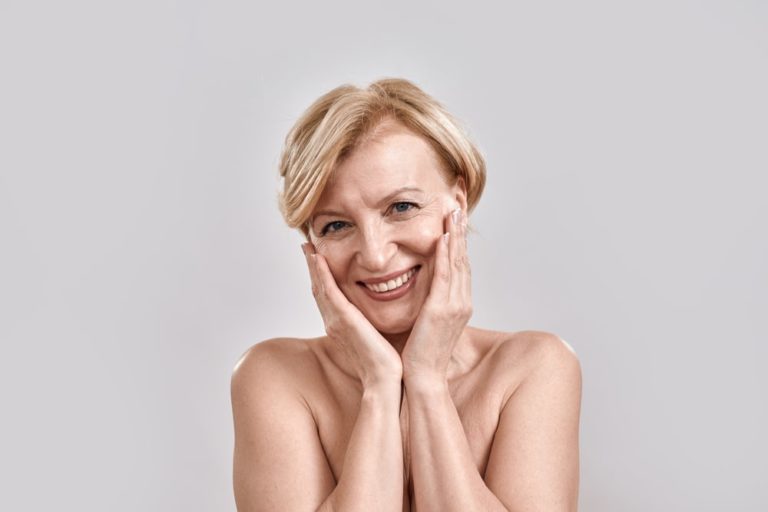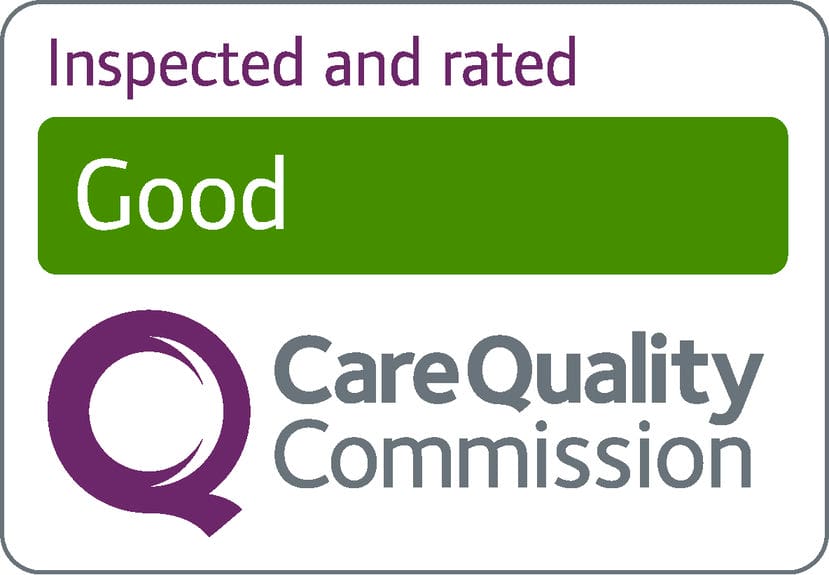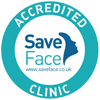We hear and read so much about collagen and elastin; we know that we definitely need it, but do we really know what collagen and elastin are and why they’re so important to our skin? Most of us know that we want lots of collagen and elastin to stop lines and wrinkles from developing or worsening but that’s usually the extent of our knowledge; this is why we’ve decided to delve a little deeper to demystify the world of collagen and elastin.
What is collagen made of?
Collagen is a naturally occurring protein (an amino acid) that is found in our connective tissue. It gives strength and structure; think of it as scaffolding holding up the top layer of skin. In fact, type 1 collagen fibres (yes, there are many types!) are five to ten times stronger than steel.
Wrinkles and lines are signs that your skin lacks collagen.
What is elastin made of?
Elastin is also a protein (an amino acid) that is naturally found in our tissues. It provides resilience and elasticity to our skin; in fact, it is approximately 1,000 times more flexible than collagen and allows the skin to snap back into shape like a coiled spring.
A lack of firmness, elasticity and skin sagging are all signs that your skin is lacking elastin.
What’s the difference between collagen and elastin?
Although the two proteins are closely associated and work together, they have two totally opposing jobs. Collagen provides rigidity and strength whereas elastin allows the skin to be flexible and bounce back to its original shape. A good example of their teamwork is when we frown; the skin is flexible and moves to create lines between your brows, then when you relax those muscles the skin bounces back into its smooth original state. If your collagen isn’t very strong or if there aren’t lots in your skin, repeating this frowning movement over time creates permanent lines which are there even when you’re not furrowing your brow.
What breaks down collagen and elastin?
These crucial skin components naturally decline in production and breakdown as we age. Factors such as UV light from the sun, pollution and smoking can accelerate the breakdown and slow the production of these important proteins.
Additionally, there are diseases and conditions which result in abnormal collagen production such as scurvy, which is caused by a deficiency in vitamin C. Elastin is also affected by diseases, such as pseudoxanthoma elasticum, which result in a breakdown and/or the impaired function of elastin.
What happens to collagen and elastin as we age?
As we age our bodies break down collagen and elastin fibres produce less and less of them. Women have a dramatic decline in production of collagen after the menopause and by the time we reach 60 the decline in the in production is considerable.
After puberty (eeek!) the skin tends to stop producing elastin. As the ageing process continues, toxins such as calcium salts and fatty acids build up around the elastin fibres and cause them to swell and stiffen; according to the latest scientific research, this lack of flexibly and stiffness is accountable for skin sagging as the elastin can no longer hold the skin.
The breakdown and reduced production of collagen and elastin mean that the ‘scaffolding’ supporting your skin starts to breakdown and your skin loses its ‘bounce’ and ability to snap back; the result is wrinkles, lines and loose, sagging, thin skin.
What is a good source of collagen?
We naturally have collagen in our skin (and throughout the body) however there are some things that you can use, internally and externally, to boost your production of collagen. Vitamin C is required in the production of amino acids which make collagen. Vitamin C must be included in your diet; simply, eat lots of fruits and veg! You may also consider taking a supplement if you struggle to regularly make food with high vitamin C content part of your diet; we’d recommend seeing your GP for specific advice about supplements.
Although diet should play a big part in how you get vitamin C, Vitamin C serums are available and ideal for ensuring that the vitamin C is going to your skin; we have no control of how our body distributes the vitamin c we consume it through food.
Can you protect collagen and elastin?
It is never too early to start protecting and taking care of your skin. Trust us. Ageing, damaged skin is much more difficult to correct than protecting and helping to prevent in the first place.
One thing we can all do is eat a well-balanced diet consisting of vitamins and antioxidants such as fruit and veg to help your skin from the inside. There are collagen supplements on the market; some will be more effective than others so do your research on them. At the Clinic, we only use Gold Collagen Rx, the strongest and most advanced Gold Collagen supplement available on the market. As sceptics, we were impressed with the peer-reviews, published research supporting this product which contains hydrolysed (meaning it won’t all be destroyed during digestion) elastin as well as bioactive collagen peptides and cram-packed with powerful antioxidants vitamin C and D. A 9-week course of a daily Rx supplement is recommended and then you can move on to maintenance (a supplement every few weeks); this can be used on its own or to complement any aesthetic treatments that you may have.
If you are considering treatments to boost your production of collagen and to revitalise your elastin fibres it may be a daunting process as there are so many treatments available. We’ve compiled a few treatments that you might benefit from (and why!) below:
Byonik
With over 10 years of research and development in cooperation with the scientists at Ulm University, Byonik uses pulse-triggered laser technology helps to detoxify your elastin fibres, allowing them to be free of the toxin build-up we discussed earlier, giving them their bounce back. This treatment is major TLC for your elastin. We’re honestly just touching the tip of the iceberg when it comes to what the Byonik treatment does for your skin, read more about how it gets antioxidants and deeply hydrating hyaluronic acid inside your skin cells, promotes healing, protects your DNA, increases the production of your collagen and more here.
Thermage
Even after decades of the ‘latest thing’ coming on to the market, patients still seek out the Thermage treatment for non-surgical skin tightening. Providing long-lasting results which subtly but effectively tighten, firm and smooth anywhere on the body, face, and eyes (even your eyelids) we totally understand why this deeply collagen stimulating treatment is popular with both men and women. In particular, people seek this ‘mono-polar radiofrequency’ technology out for skin issues such as stretched, thin and crepy skin on the abdomen (sometimes referred to as a ‘mummy tummy’); sagging, heavy, creased eyelids; wrinkled, crepy, loose skin on the inner arms, knees and neck. Learn more about Thermage here.
Profhilo
Winner of the Aesthetic Awards Product Innovation of the Year 2016, Profhilo is truly a pioneering treatment; it is an entirely new category of injectable treatment not to be confused with mesotherapy, dermal fillers or skin boosters. Why? Unlike other types of injectable hyaluronic acid (HA), Profhilo uses a unique slow-release HA which has a honey-like consistency to infuse your tissues with its deep hydration and, due to the unique combination of HA, Profhilo triggers a skin awakening process called ‘bio-remodelling’ which stimulates 4 different types of collagen. This bio-remodelling process is likened to switching your skins’ ‘lights on’.
If you would like any personalised advice for your skin, please don’t hesitate to arrange a consultation.
Disclaimer: This blog is not to be used for diagnostic purposes. We are all unique which means that our results, recovery and suitability for any type of treatment will vary. Always seek the advice of a professional should you have any health or cosmetic concerns or to discuss treatments specifically for you.





